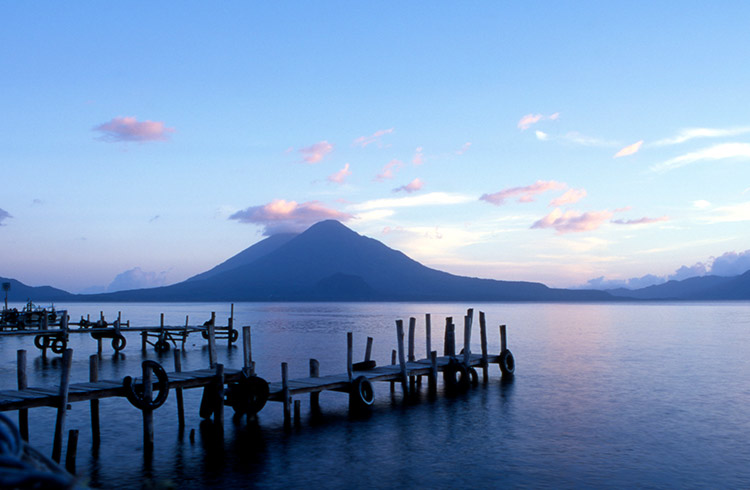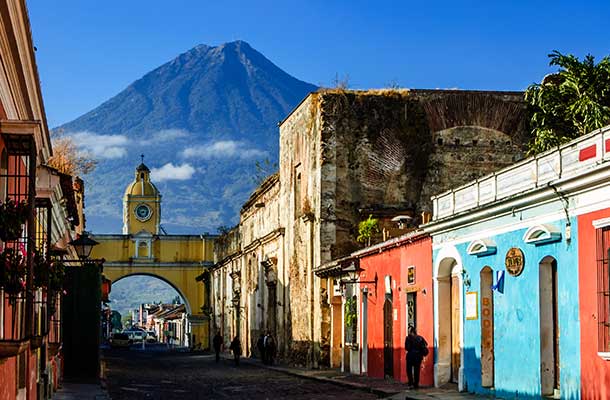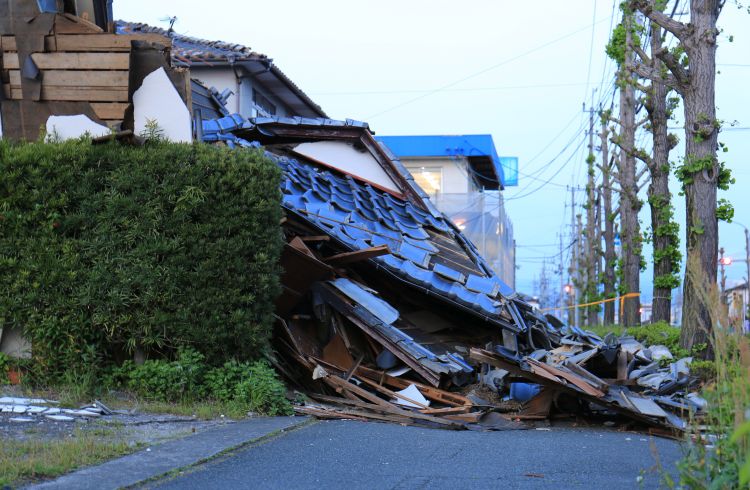Volcanoes and Earthquakes in Guatemala: Tips to Stay Safe
Guatemala's geology and tropical location leave locals and travelers in the wake of a few pesky challenges every now and again.
 Photo © iStock/waddle
Photo © iStock/waddle
Guatemala is a country built on volcanoes, set upon fault lines, and in the path of tropical storms. To be a local in Guatemala, you've got to endure a whole heap of natural disasters, both big and small. To be a traveler, you've got the risk of experiencing any number of these in some way. But, the best way to stay safe is to be informed in the first place.
When the earth shakes, it's an earthquake
Earthquakes have a prominent role in Guatemalan history. In 1773, an earthquake hit the old capital, Antigua, so hard and demolished so many of the buildings, that city officials decided to move rather than re-build. So, Guatemala City was established in 1776.
Maybe they didn't move far enough, because Antigua, Guatemala City and Quetzaltenango are all situated on the Montagua and Chixoy-Polochic fault complex, and experience frequent quakes. The deadliest quake to ever hit was back in 1976, with the largest strikes hitting near Guatemala City.
It's not a "show stopper" for travel, but earthquakes do occur. Statistically speaking, you're extremely unlikely to feel anything more than a little tremor. In 2012, an earthquake killed 39 people; making it the deadliest since 1976.
What can you do?
You can scream and run around like a chicken with your head cut off, or find something sturdy to hide under with your head covered until the shaking stops. The latter will probably keep you safer in case of an emergency. Stay away from items that may fall over or break, such as large bookcases and windows. If you are outside, move clear of power lines and buildings.
When the windows rattle, it's a tropical storm
Storm season in Guatemala is June to November, similar to the Caribbean and southern area of the United States. Traveling to Guatemala during this time always opens up the possibility of being caught in a bad storm. But, because they're guided by the hand of nature, it's not always possible to predict exactly where they'll go.
Tropical Storm Agatha struck in 2010 causing 150 deaths, and the same goes for Hurricane Ida that struck the year before. Hurricane Mitch that struck back in 1998 left massive destruction with 11,000 dead and 8,000 missing. The numbers here are shocking, and the reason for most of the deaths is because of the flooding and landslides that come from all the rain.
Flooding and intense rains from Agatha in 2010 are said to be the cause for the giant sinkhole that took out an entire block in Guatemala City. In 2015, a landslide occurred in the south of Guatemala killing 280 people; with many others unaccounted for.
When a large number of hurricanes and storms hit Guatemala in a short period of time, dumping more rain than usual and causing widespread damage, many thousands of local people can feel the effects of the damage for months following the disaster. If you've got travel plans for shortly after the storm season, keep an eye out to be sure if areas you're traveling to have been affected.
What can you do?
The best solution would be to avoid travel to Guatemala during the rainy tropical storm season, and if that still isn't the right option for you, then at least stay on top of the news and get to safer ground if you have the time.
When the lava flows, it's a volcanic eruption
You'll find a popular tourist attraction just outside of Antigua, the active volcano, Pacaya. When we say active, we mean there's literally fresh lava rolling down the sides.
As this is a tourist attraction, many people forget that an active volcano could still erupt from time-to-time, just as Pacaya did in May 2010, killing one reporter who was hit by rocks and debris.
There are several volcanoes in Guatemala, such as the Santiaguito volcano near Quetzaltenango, which is actually in a constant state of eruption. One traveler recalls seeing the volcano covered in gray ash.
In 2017, Guatemala's Volcan de Fuego erupted creating a 20,000 ft high ash and gas plume, and with lava shooting 980ft into the air. The volcano is located 10 miles from Antigua, one of Guatemala's biggest cities and a popular destination for tourists. Pacaya, also located near Antigua erupted in 2014, forcing the evacuation of over 3000 locals. Both volcanoes have shown signs of unrest since their initial eruptions.
What can you do?
If partaking in a volcano climb, steer clear of any lava flows. Try to resist the temptation to get close and poke it with a stick, lava is really, really hot.
We're stating the really obvious here, because Guatemala's not the sort of place to have warning signs and advice notices, and the safety standards will be a little lower than you're used to.
Staying safe in Guatemala
The best way to prepare is to know your risks, to plan accordingly, and most of all, to arm yourself with travel insurance in case you're injured in any way. Registering with the embassy after arrival will help your home country keep tabs on you in case of an emergency.
Natural disasters in neighbouring countries such as Mexico and El Salvador can also affect daily life in Guatemala. It's important that when travelling in Guatemala and other Central American countries to keep in contact with family and friends, contact your tour guides and never travel alone during rainy season. Check your country's travel advisories and also local reports for any important updates and information should a natural disaster occur before you travel and while staying in Guatemala.
Related articles
Simple and flexible travel insurance
You can buy at home or while traveling, and claim online from anywhere in the world. With 150+ adventure activities covered and 24/7 emergency assistance.
Get a quote

1 Comment
NICE info about the volcanoes, and the "quakes." Thank you!
I was in Antigua, Guate. for about 3 Months when "Volcan de Fuego," (the volcano of of FIRE,) spewed it's ASH for the whole 3 months. And rather than wearing a surgical mask, and I had to have 35 minutes of OXYGEN administered via "emergency ambulance personal and a doctor, just to get on a plane to ESCAPE!
Want some more "warning material" about southern Mexico, Guatemala, Belize, and Honduras? Type into search on ds.iris.edu on their "Earthquake Browser," and search those 4 countries in a search. AND see a staggering 40951 "earthquakes" (?) since end of 2017 and last week.